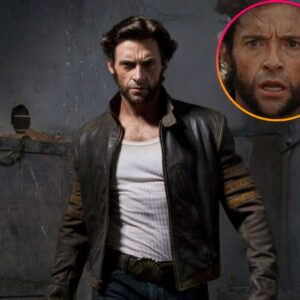CEO Bob Iger says company will scale back releases in superhero franchise as it seeks to take on Netflix in streaming market

Disney plans to release fewer movies and “focus more on quality” at its key franchises, following of a string of high-profile flops at the box office.
The Hollywood giant is cutting back on productions from the Marvel Cinematic Universe, which ramped up releases in recent years as Disney embarked upon an expensive bid to take on Netflix.
“I’ve been working hard with the studio to reduce output and focus more on quality,” Bob Iger, CEO of Disney, told Wall Street analysts. “That’s particularly true with Marvel.”
Disney’s entertainment streaming services, Disney+ and Hulu, unexpectedly generated a profit in the latest quarter: the first time the company has made money on its costly push into streaming.
But shares in Disney fell sharply on Tuesday, dropping 9% during early trading in New York, after Disney+ failed to add as many subscribers as analysts had expected, and the wider company’s profit forecast also fell short of expectations.

A series of Disney’s recent big-budget movies – including The Marvels, Indiana Jones and the Dial of Destiny, Wish and Haunted Mansion – struggled last year, denting the Magic Kingdom’s stellar record at the box office.
But Iger, the veteran executive summoned out of retirement to engineer a turnaround at Disney, insisted on Tuesday that he felt “great” about its slate of upcoming releases.
Over the coming months this will include sequels including Pixar’s Inside Out 2, Moana 2 and Marvel’s Deadpool & Wolverine. Another sequel, Kingdom of the Planet of the Apes, will hit cinemas and theaters later this week.
Disney’s intellectual property is “second to none”, said Iger, who added he was satisfied with the company’s balance of original and follow-up movies. “There’s a lot of value in sequels,” he told investors, as they are part of “known” franchises that cost less to market.
Total revenue at Disney rose 1% to $22.1bn in the three months to 30 March, bolstered by the strong performance of its theme parks and resorts. Pre-tax profits dropped 69% to $657m.
While Disney’s entertainment streaming services broke even for the first time, generating operating profits of $47m, from a loss of $587m a year before, it braced investors for a “softer” performance in the current quarter.
“We’ve said all along our path to profitability [on streaming] will not be linear,” said Iger, who maintained it would be a “growth driver” in years to come.
Disney+ is preparing to launch a crackdown on password sharing. It will also start showing some live sports through a limited partnership with ESPN, Disney’s sports network, later this year.
The company had been “heartened by” the recent performance of Netflix, which revived growth in part by targeting users sharing accounts, and persuading them to start paying for a subscription, Iger said. “Netflix is, in many respects, the gold standard when it comes to streaming.”
News
HOT NEW : Ryan Reynolds reveals if his and Blake Lively’s fourth child’s name is on Taylor Swift’s new album
The IF actor welcomed his fourth child with the It Ends With Us actress in early 2023 While we may have gotten the names of Ryan Reynolds’ and Blake Lively’s second…
Hugh Jackman shares heartwarming family birth – after his children revealed they were ‘worried’ for their dad following split from Deborra-Lee Furness
Hugh Jackman announced some exciting news on Monday when he revealed a very anticipated birth finally happened in his home. The Hollywood star, 55, took to his Instagram…
Hugh Jackman shares heartwarming family birth – after his children revealed they were ‘worried’ for their dad following split from Deborra-Lee Furness
Hugh Jackman announced some exciting news on Monday when he revealed a very anticipated birth finally happened in his home. The Hollywood star, 55, took to his Instagram…
SEE : Sad detail in Hugh Jackman’s bachelor pad following his split from wife Deborra-Lee Furness
Fans have pointed out a sad detail in Hugh Jackman‘s latest selfie from inside his bachelor pad in New York City following his split from wife Deborra-Lee Furness. The 55-year-old actor…
HOT NEWS : Deborra-Lee Furness breaks silence on split from Hugh Jackman as she reflects on her life as a single woman
Deborra-Lee Furness has spent the months since her shock split from husband Hugh Jackman reflecting on her new single life. The pair split in September last year, and last…
The Worst Things Wolverine Has Ever Done: Killing X-Men, Creeping On Mary Jane & More
From all the X-Men movies, including the acclaimed “Logan,” to animated series like “X-Men ’97,” Wolverine is one of the biggest fan-favorite Marvel superheroes. With razor-sharp indestructible…
End of content
No more pages to load










